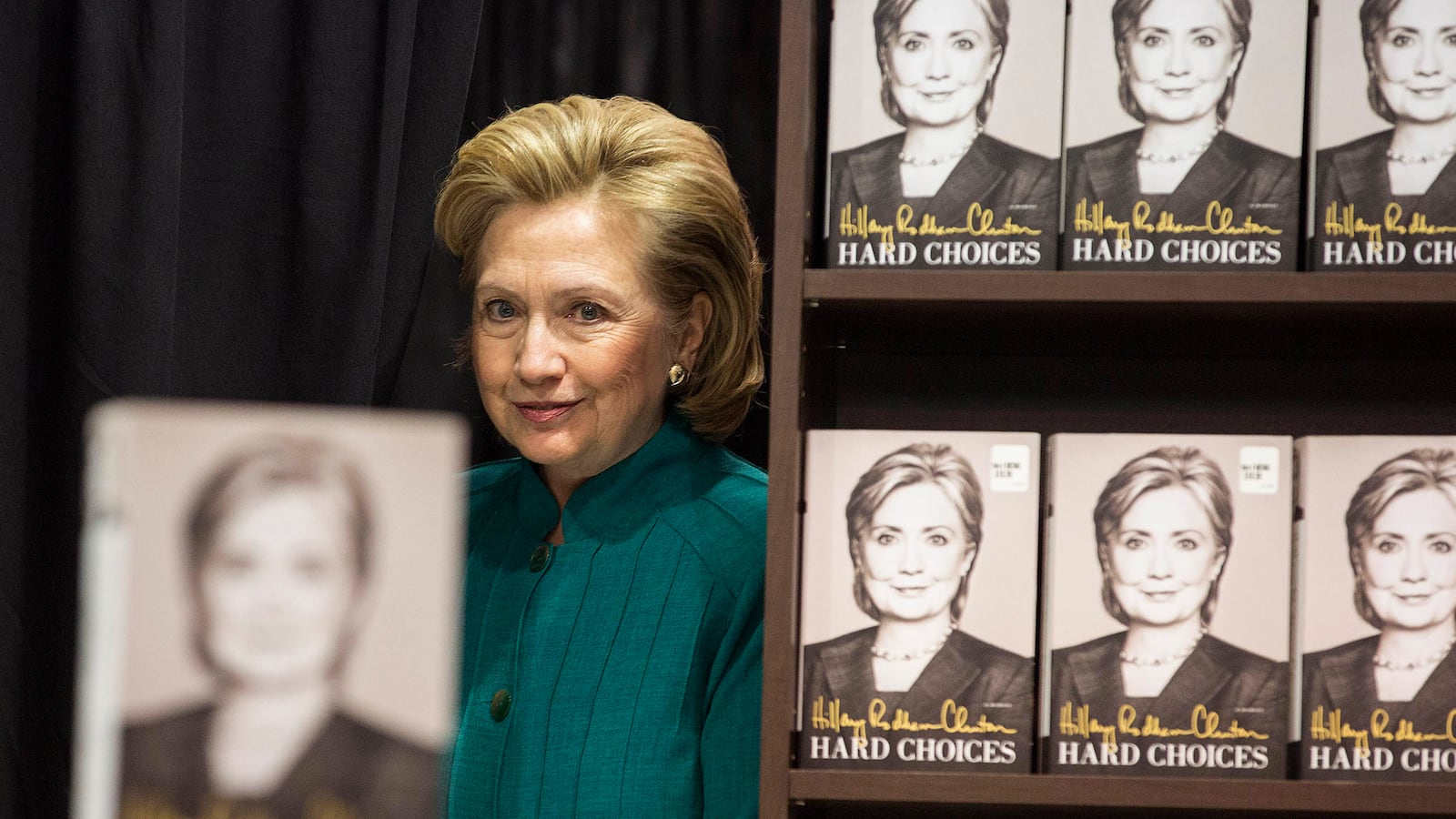Hillary Clinton’s book Hard Choices has been dismissed by many as short on news. Yet on the most important foreign policy event of her tenure as Secretary of State, the killing of Osama bin Laden, Hard Choices actually offers important new insights into the administration’s thinking about Pakistan’s role in helping to hide high-value Target Number One for almost a decade.
The Central Intelligence Agency found bin Laden hiding in a “fortified compound” in Abbottabad, Pakistan in late 2010. Abbottabad is a small city about one hour from Islamabad and home to Pakistan’s premier military academy, the equivalent of West Point. Abbottabad was founded by the British in 1853 to house a military garrison, which it still does. It is a city closely monitored and watched by Pakistan’s Inter Services Intelligence, or ISI, because it is home to much of the country’s top brass. Clinton tells readers that at the first meeting of the National Security Council principals to review the CIA’s new intelligence, the question was raised about whether the intelligence should be shared with Pakistan.
Clinton writes that “I and others thought we could not trust Pakistan.” She adds, “I also knew elements in the Pakistani intelligence service, the ISI, maintained ties to the Taliban, al-Qaeda and other extremists.” In her account, “the President immediately took that option off the table.” When another participant in the secret deliberations argued that not telling the Pakistani army would humiliate its sense of honor, then-Secretary Clinton exploded and said, “What about our national honor? What about going after the man who killed three thousand innocent people?”
The president’s decision not to tell Pakistan was, of course, the right one to make—but it was truly extraordinary in perspective. By 2011 the United States had provided over $25 billion in military and economic aid to Pakistan since 9/11 for precisely one purpose: to fight al Qaeda. Two Presidents, George W. Bush and Barack Obama, had provided 18 F16 jet fighters, eight P3C Orion maritime patrol aircraft, 6,000 TOW anti-tank missiles, 500 AMRAM air-to-air missiles, six C-130 transport aircraft, 20 Cobra attack helicopters and a Perry class frigate to the Pakistani military to encourage them to fight al Qaeda. Yet at the moment of truth, the President and the Secretary of State decided they could not trust the ISI with information on the location of al Qaeda’s leader.
Hard Choices also makes clear what has been implicit before. Secretary Clinton believed well before 2011 that elements of the Pakistani establishment were helping to hide bin Laden. In fact she said so in a meeting with Pakistani journalists and students in Islamabad in October 2009 when she found “it hard to believe that nobody in the Pakistani government knows” where bin Laden and other senior al Qaeda leaders were hiding. She asked, “Couldn’t they get them if they really wanted to?” After putting the accusation on the table, Clinton writes, “the room was completely silent. I had just said what every American official believed to be true but never uttered out loud.” White House press spokesman Robert Gibbs was asked if Clinton’s comments were too blunt and inappropriate. He responded, “completely appropriate.”
Clinton makes clear in the book she did not believe the elected civilian government knew where bin Laden was hidden. In 2007 President Asif Ali Zardari’s wife, Benazir Bhutto, was killed by an al Qaeda plot, possibly with the collusion of the ISI. The army keeps the civilians in the dark about its role in patronizing terror. Clinton also acknowledges that Pakistan faces its own terror threat and has lost thousands to terror attacks since 9/11. But the cause of this problem is precisely the army’s “ties to the Taliban and other extremists that date back to the struggle against the Soviet Union in the 1980s.” Pakistan has kept “poisonous snakes in its backyard and expected them to bite only its neighbors.”
Clinton’s account of her suspicions of Pakistani collusion in hiding bin Laden reinforce Bob Gates’ more cryptic account in his book, Duty, where he writes that Pakistan “was really no ally at all” in fighting al Qaeda. Gates says, “In every instance where we provided a heads-up to the Pakistani military or intelligence services, the target was forewarned and fled.”
Pakistan’s double-dealing continues today. After the deadly attack on Karachi airport early this month, Pakistan’s army launched a military operation in Waziristan on the Afghan border to attack the Pakistan Taliban. Those U.S.-supplied F16s have been targeting the Pakistani Taliban and associated militants in an operation code named Zarb-e-Azb, after the prophet Muhammad’s sword. But they are not targeting the hideouts and safe havens of the Haqqani network of the Afghanistan Taliban, which operates in the same neighborhood. The Haqqanis have been partners of the ISI since the late 1970s, first against the Russians and now against NATO forces in Afghanistan. The Haqqani network was hiding Bowe Berghdal in the borderlands with Afghanistan for three years. And the U.S. still provides military aid to Pakistan.
Three years after the raid that brought justice to HVT1, there is still no smoking gun about what Pakistani intelligence knew about his hideout. Pakistan’s own secret investigation of the issue, leaked to Al-Jazeera, makes clear it is likely the ISI knew about the hideout in Abbottabad and helped hide bin Laden, but it carefully refrains from saying so explicitly. That would be too dangerous.






